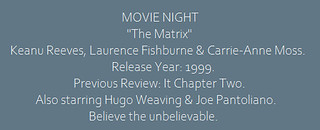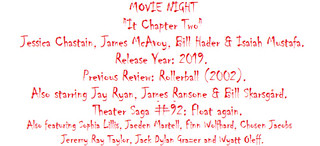 Review #1278: Legal Eagles.
Review #1278: Legal Eagles.Cast:
Robert Redford (Tom Logan), Debra Winger (Laura Kelly), Daryl Hannah (Chelsea Deardon), Brian Dennehy (Cavanaugh/Joe Brock), Terence Stamp (Victor Taft), Steven Hill (Bower), Christine Baranski (Carol Freeman), Roscoe Lee Browne (Judge Dawkins), David Clennon (Blanchard), John McMartin (Forrester), Robert Curtis Brown (Roger), Grant Heslov (Usher), Sara Botsford (Barbara), and Jennifer Dundas (Jennifer Logan) Directed by Ivan Reitman (#026 - Ghostbusters, #031 - Ghostbusters II, #243 - Stripes, and #487 - Twins)
Review:
It doesn't take too much time to think that this film could seem interesting. The original idea was to make a buddy film involving Bill Murray and Dustin Hoffman, but when those plans fell apart, Redford expressed interest in doing a romantic comedy, which inspired changes to a dynamic reminiscent of Katherine Hepburn-Spencer Tracy films. The screenplay and story were done by Jim Cash and Jack Epps, Jr, with Reitman contributing to the latter. In a sense, this film is a romance. Of course it also happens to have a sense of comedy, thriller, and courtroom drama packed into its two hour duration, which turns out to be a most unwieldy combination. It certainly seems too packed in to really make the impact it wants to make, which results in a thoroughly average film. It complicates itself too much without really getting a feel for the simple things that can make a film tick: just having fun. One instead sees something that is bound to certain excesses (namely its budget of $40 million) and not working as great whenever it tries shifting gears between rom-com and thriller. There either seems to be too many characters or not enough that actually seems worthy enough to invest in. At least the performances are fine to watch, with Redford and Winder coming out the best, since they at least seem like they are having some sort of chemistry together, whether when trapped in buddy scenarios like an exploding warehouse or some other odd scenario, like Redford and his character that likes to tap dance when unable to sleep (gee, where do you think they'll go with that quirk). Hannah and her performance artist-turned-accused robber/murderer does okay, giving off a laugh or two, but she seems stretched pretty thin in actually making her presence really count, odd but harmless. When she actually does try to romance Redford and his character, I'm just twiddling my thumbs more than anything. Dennehy does just fine, snide yet worth seeing. The other members of the cast don't have as much to really do, seemingly there just to fill time and plot, which is a shame. How does one make a buddy movie with lawyers seem so awkward? One cannot help but wonder if this film needed more or less re-working to really hit its mark (it most certainly needed a trimming down). Actually, there exists an alternate version in which Hannah's character is found to be guilty of one of the murders. I guess that could've proved interesting, though I wonder if that version had more focus. The film just comes and goes, whether in the courtroom or somewhere else. At least one might get some sort of enjoyment over spectacle for the film, what with a climax involving a burning building and all, but its setup doesn't really leave much to give investment over. Their fates never seem to be hanging too much in the balance, and guessing who the real culprit is gets to be pretty easy when the others start dying off. It just seems like a movie too safe to either be really funny or usefully dramatic, trying to get its hand in many genre jars and getting only crumbs in return. It's a bland movie, but at least one could probably come out of it without groaning too much for two hours. I can't call it a winner, but it could probably work as a lark if faced with nothing else to do.
Overall, I give it 6 out of 10 stars.









 Review #1269: You Kill Me.
Review #1269: You Kill Me.